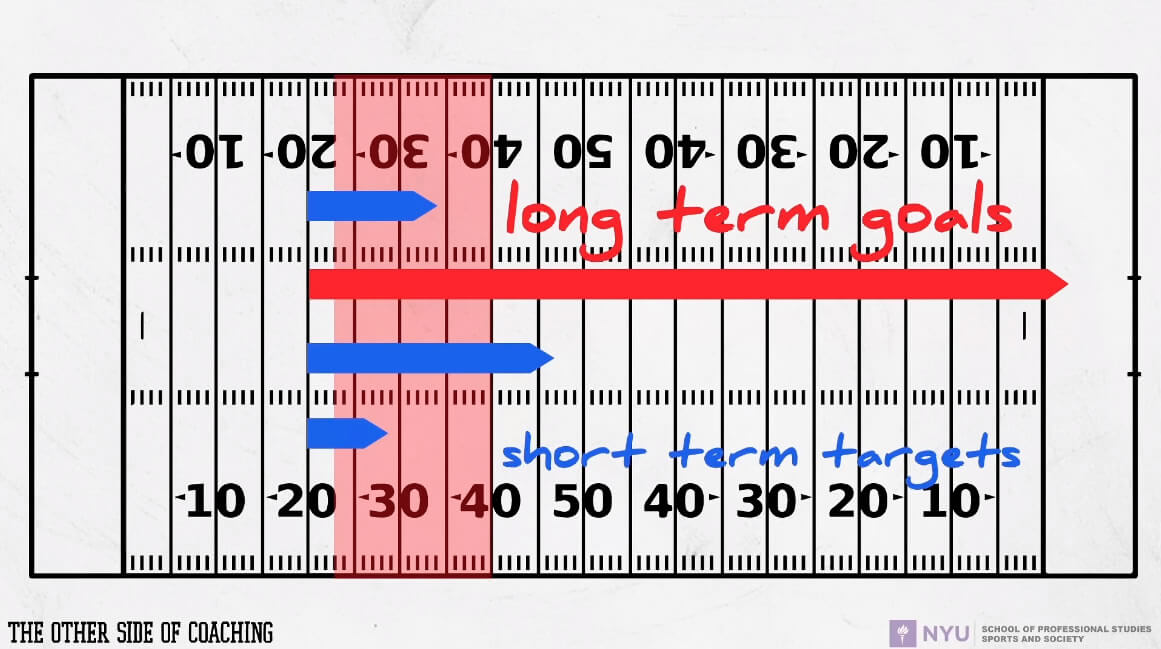Creating a Success Mindset for Coaches

You have probably noticed that when you have players with great attitude and strong work ethic, you have a much better chance for a successful season. These kids are full of grit and perseverance. They live by a success mindset. A success mindset empowers your athletes to love their sport and their progress. By coaching with a success mindset, you can develop more of these valuable players. Here’s how.
Coach to develop work ethic, commitment, and trust
You want to motivate your team so that everyone looks forward to practices and games. Teams and players thrive when they feel their coaches know how to guide them to achieve. So, assess and set clear short-term targets and long-term goals for each player and for the team as a whole. Then you and they know exactly what you are working to master.
Good coaches make sure that everyone, including stars, learns to work hard to develop a success mindset. Coaches and parents are often very enthusiastic about early maturing kids with natural talent. But, as a coach, you know that a positive team-first attitude and training hard are more important than size or talent alone. Pay attention to all your players and they will trust you to bring out their best.
Set and manage expectations
Look at your players and make sure that you know what is reasonable to expect for their age and stage. What you plan for an 11-year-old will not be the same as a 14 or 17-year-old.
Set expectations at the beginning of the season. Write and distribute separate team rules including logistics and behavior for both players and parents. Then, enforce them. And warning! Make exceptions at your own risk—once made, they will be requested again and again.
Communication and motivation
Keep practices moving, challenging, and fun. Use effective communication to keep your players motivated and to build commitment. Give players positive verbal incentives to work on those team and individual goals.
Use your communication during practices to maximize skill development and game strategy. Notice positive gains, of any size. Don’t assume kids will learn by osmosis. Some do, most don’t. Most need to hear, see and try new skills before they catch on.
As you know, learning can be a messy process. Mistakes are often a disappointment for everyone. Instead, learn to love mistakes. Instead of focusing on the error, look at the cause. Mistakes show and tell you what the kids need to achieve and succeed.
But take good care here. Sometimes mistakes lead to a blame and shame culture. So, Instead of developing a success mindset, kids develop fear and negativity.
Make sure you avoid general praise like “You are amazing, the best I have never seen….etc.” Extravagant praise creates kids who work for approval instead of improvement. Research shows that kids who work for approval may not reach their full potential because they’re afraid of disappointing you or their parents and often drop out of sports altogether. Kids, who work for improvement and have fun, stay in and work hard.
Point to specific successes like “You passed into the empty slot just like we practiced”, “great timing on that throw from the outfield to home plate”, “nice serve into the far corner”. Push and enthusiastically support your players. Point out errors coupled with positive instruction. By showing them what you value, kids will work harder to get better. Notice dedication, good play and good teamwork.
Adopt the language of a success mindset.
Language of a success mindset
So this is how you talk with a success mindset:
That means not to talk negatively about people who can’t hear you. Gossip always backfires in the most unexpected and unpleasant ways. Be extra careful of parents trying to promote their kids by criticizing others.
Model character and respect and you know what that means.
Be on time, be prepared, use the Golden Rule, and be proud of your choices. Kids look up to you.
The most satisfying sports experiences happen when athletes develop passion to learn and improve. Doing their best everyday leads to both personal and team success. You want persistent, enthusiastic and committed players. Play your part by building a success mindset. When your team adopts a success mindset, you will all find success. Try it!